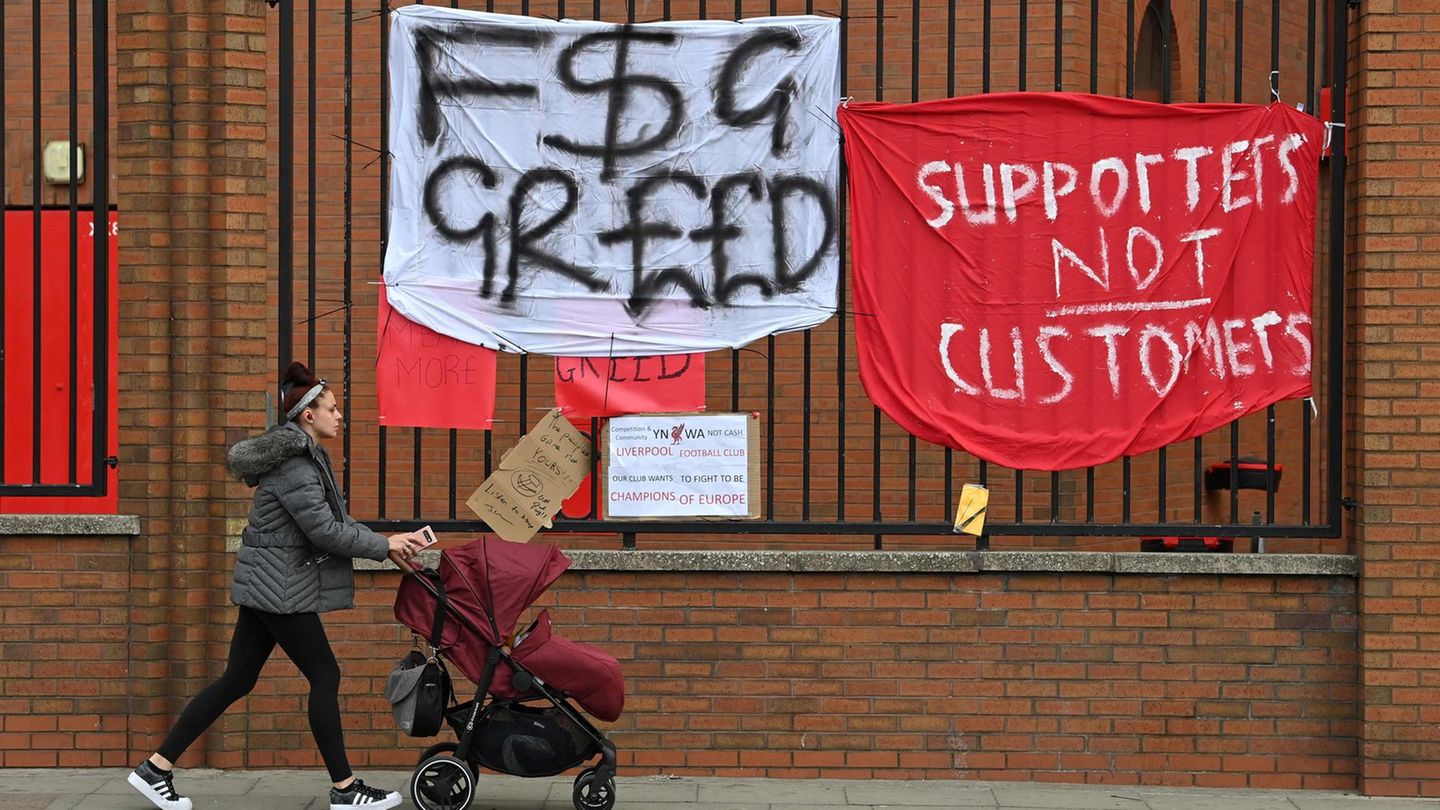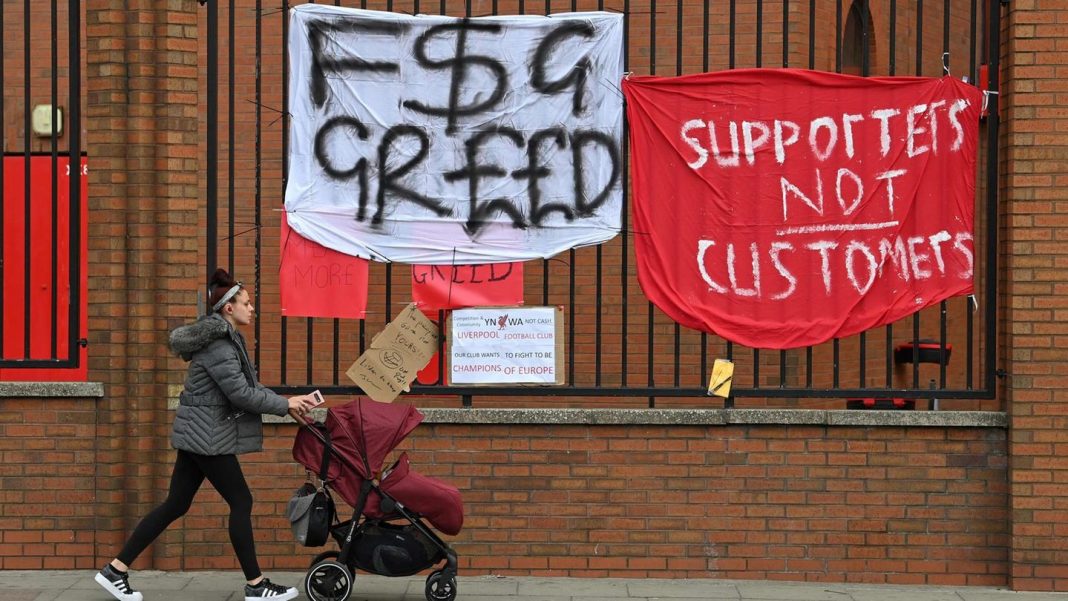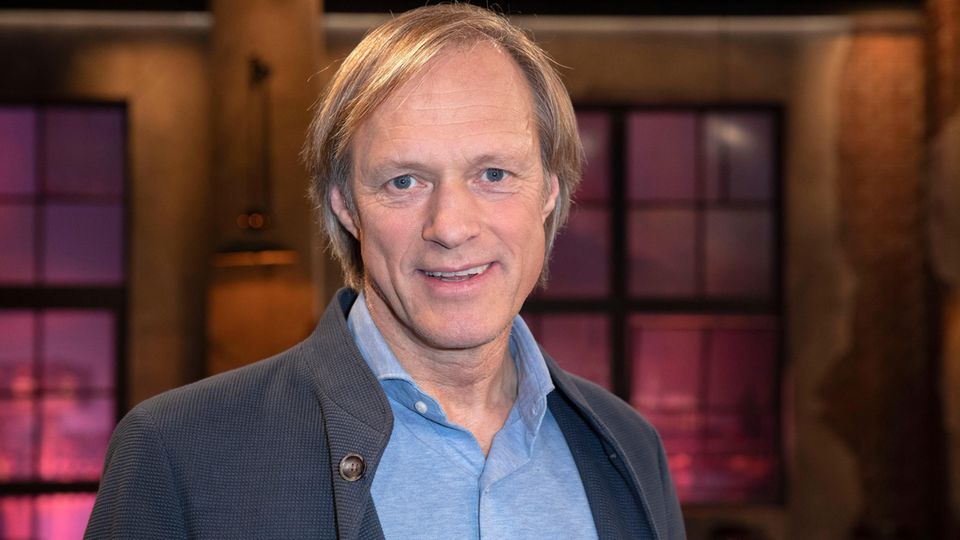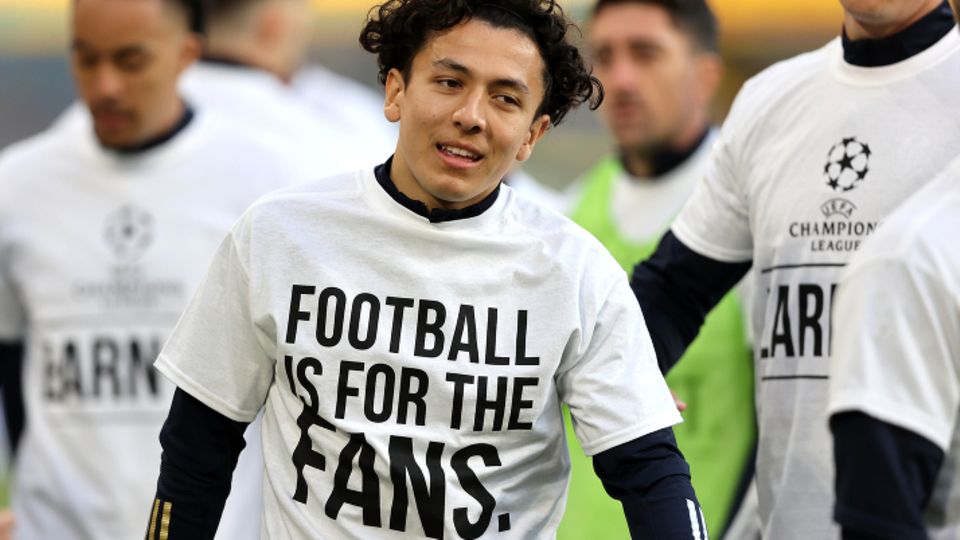Opinion
Plans of the top clubs
Why the Super League turned out to be a pipe dream – and there are mendacious winners

Protest posters of fans hang at the stadium on Anfield Road in Liverpool
© Paul Ellis / AFP
The idea of the Super League was buried so quickly because fans, associations and other clubs were united in their opposition – but success must not hide the fact that football has a fundamental problem.
If you want to understand how strong the resistance against the plans of the Super League was, you only have to watch the Sky interview with former England international Gary Neville. He raged with a scolding tirade against the English clubs who wanted to participate in the closed elite league: “I am disgusted, absolutely disgusted“, they are “blunders“ who want to change to a league “without competition“, it is “a disgrace“, only “sheer greed“ drives them and “they have nothing to do with football in this country“.
The former professional addressed a former club Manchester United in particular. Neville’s anger is palpable in every word, in every sentence. However, it also targeted the other English and European clubs involved in the ill-fated Super League project, including heavyweights such as Real Madrid and Juventus Turin. Neville’s horror at the project is representative of the storm of indignation that broke out in Great Britain and throughout Europe. At Chelsea and Liverpool, the fans took to the streets. He was so fierce that the six English clubs gave up the project as quickly as possible before the image damage became even greater.
The Super League would have changed football
With the withdrawal of the English clubs the idea had died faster than it had seen the light of day: 20 clubs play in a European Super League, 15 of them as permanent members. Pre-financed by the US investment bank JPMorgan Chase, secure revenue should be guaranteed through self-marketing – the Super League should become a money-printing machine for the clubs, without qualifying in the efforts of everyday league life. The elimination of the basic competition alone would have changed the character of football, which lives on the possibility of the promotion and relegation of the clubs.
The audacity of the initiative was only surpassed by the rationale put forward by Real boss and billionaire Florentino Pérez for the project: he actually claimed to “save football, which is in a critical situation”. What he meant by that: Real Madrid like other big traditional clubs are in a financial crisis due to the Coronakrise. FC Barcelona, for example, which was also part of the “dirty dozen”, is plagued by debts of over one billion euros. In alliance with the owners of the English clubs, who strive for pure profit, the debt clubs wanted to save their status, regardless of fans, national leagues or annoying Uefa rules.
Watzke and Rummenigge moved quickly into position
It was a remarkable alliance that buried the Super League so quickly. Fans, leagues, associations, current and former professionals, clubs, media – all condemned the idea. In Britain, even politics interfered: Prime Minister Boris Johnson wrote in a post for the Radau paper “Sun”: I will do everything I can to show this ridiculous plan the red card.”Johnson met union representatives and fan groups at the crisis summit in Downing Street. The pressure on the English clubs was enormous-and had an effect.
The alliance in the fight against the Super League empire also included FC Bayern and Borussia Dortmund, which is a good sign from the German point of view. Karl-Heinz Rummenigge and Hans-Joachim Watzke quickly took a public stand. They know very well that a Super League without competition would have destroyed a foundation of football and thus harm their own interests. They demonstrated a sense for the cultural heritage of football that US investors and European billionaires apparently do not have.
But the fight for football and the future path is therefore not over. The cynical point is that Uefa and its president Aleksander Ceferin are the winners. It is first and foremost the European Football Association, which, with its recently bloated Champions League itself, is contributing to the fact that professional football has a fundamental problem of distribution and justice and is alienating football fans. There will still be talk about this.





